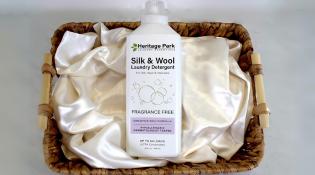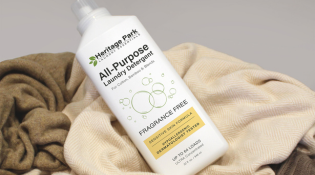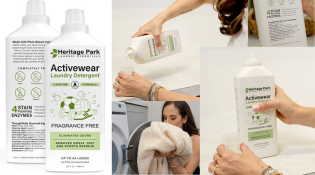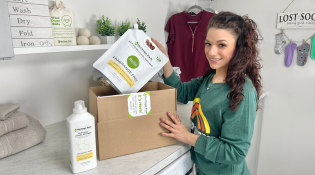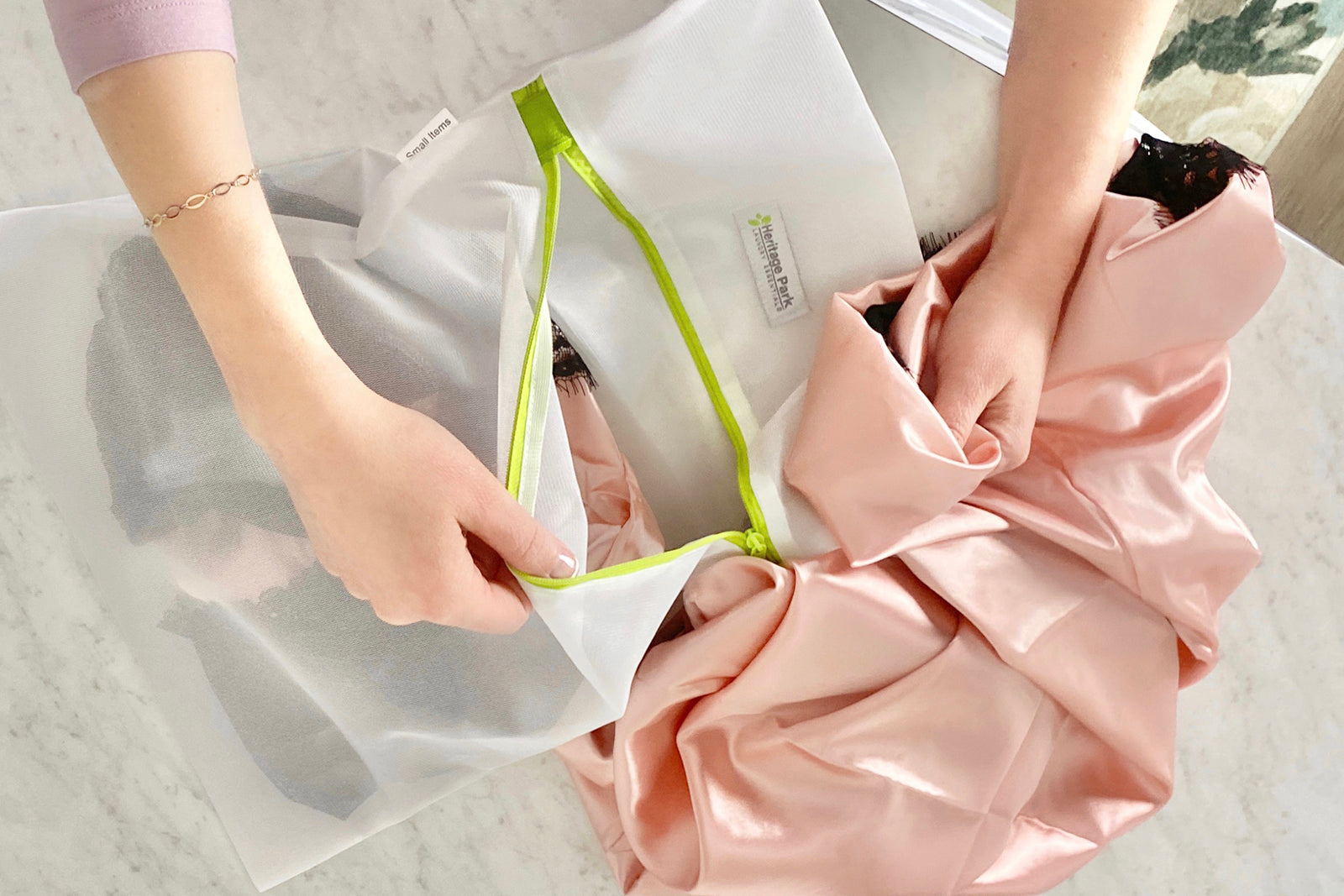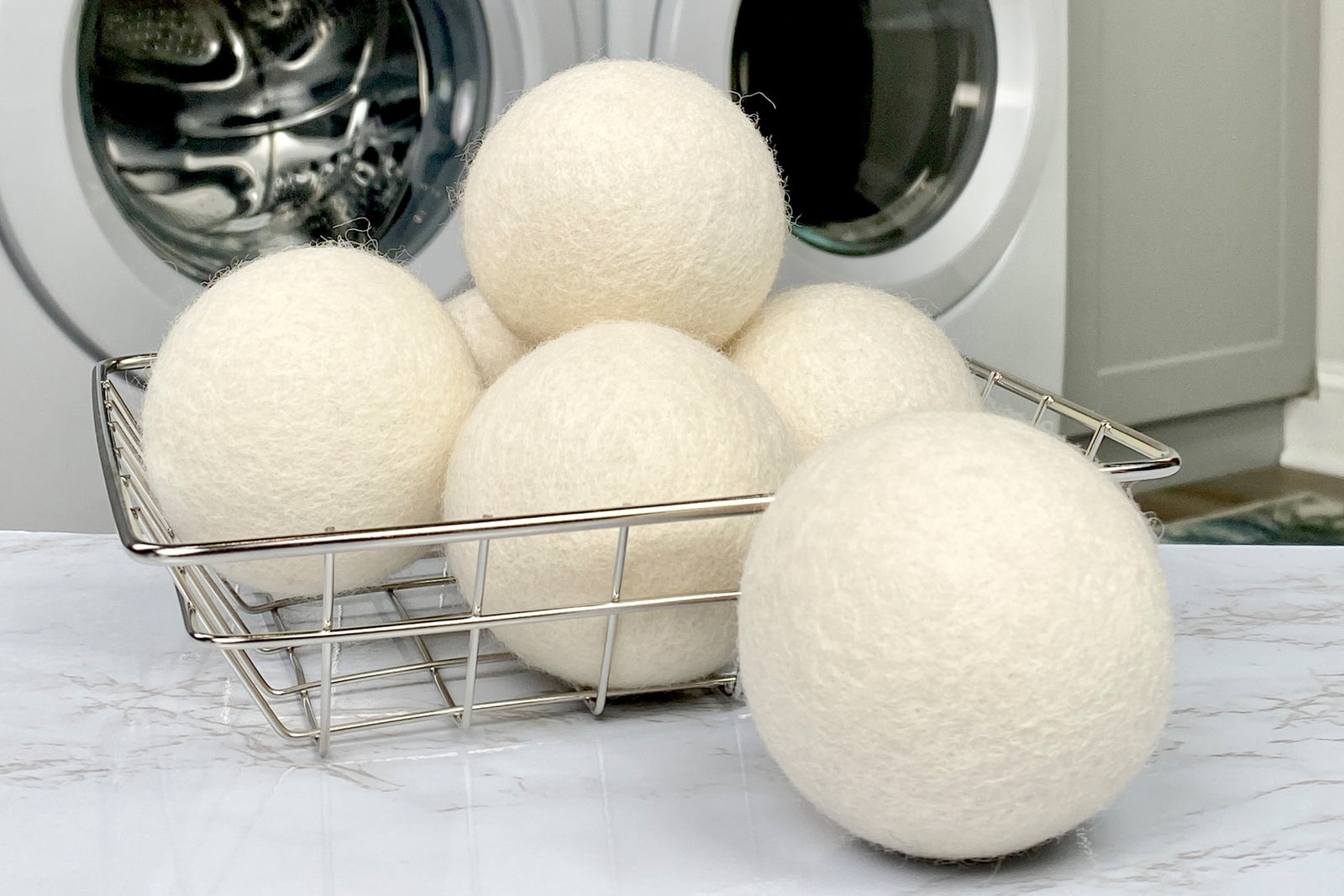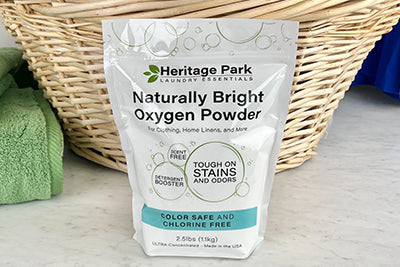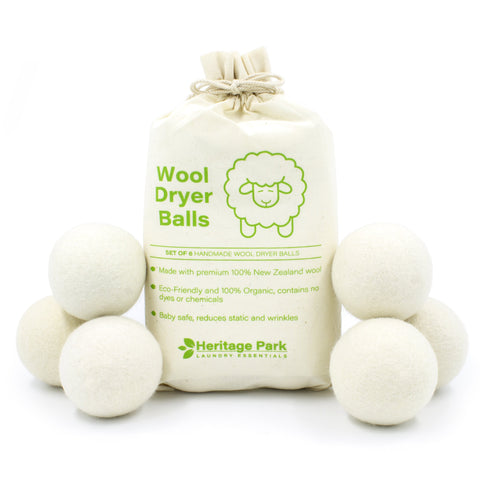How old should your children be before they do their own laundry? The answer is probably younger than you think! Teaching your children to do laundry isn't just about clean clothes; it is also about building independence and life skills they'll need long after they leave home. Here's insight from Heritage Park Laundry Essentials on how to start early and build toward full laundry independence by middle school.
Key Takeaways
|
Every Fall, college resident advisors share the same stories: freshmen who don't know how to work a washing machine, students who turn everything pink by washing a red sweatshirt with white sheets, and the classic panic call home asking, "Wait, what temperature do I use?" The tales are endless and often hilarious. One parent recently shared that her daughter called from her dorm asking if she could just Febreze her clothes instead of washing them. Another recounted her son's bewildered question: "Mom, my jeans are stiff and weird. Is that normal?" He'd used an entire cup of detergent for one load.
Parents, don't let this be your kid.

Doing Your Own Laundry: A Milestone of Independence
If you've got a good laundry routine going — and we definitely hope you do—it can be all too easy to go with the flow and continue doing family laundry well into your children's teenage years. After all, it's faster to throw everything in yourself than to supervise, right? But here's the truth: you're setting your kids up for problems later on. Laundry isn't just about clean clothes. It's about independence, responsibility, and gathering practical knowledge they'll need away from home. As a good parent, you owe it to your children to teach them these skills.
Teaching Kids Laundry: Start Early for Success
Think about it this way: we teach our kids to brush their teeth, make their beds, and clean up after themselves. Laundry is no different. It's a basic self-care skill that contributes to hygiene, organization, and personal responsibility. When kids learn to manage their own clothing from an early age, they develop a sense of ownership over their belongings and learn that taking care of things requires effort.
Beyond the practical benefits, teaching laundry skills helps kids understand consequences. They learn that if they don't wash their soccer uniform in time, they won't have it for the game. They discover that tossing a new red shirt in with white towels results in pink towels. These are valuable lessons best learned at home, where the stakes are low and you're there to guide them through fixes and solutions.
Starting early also means the learning curve is gradual. A teenager who has never touched a washing machine will feel overwhelmed trying to learn everything at once. But a child who has been participating in laundry tasks since elementary school? They'll transition smoothly to full independence when the time comes.
Age-Appropriate Laundry Fun: Building Skills Over Time
The beauty of teaching laundry skills is that you can start incredibly young, make it engaging, and build gradually. These are general guidelines that you absolutely may want to modify based on your child's capabilities and maturity.
Preschool and Early Elementary (Ages 3-7)
- Sort clothing by color (make it a game: "Can you find all the dark clothes?")
- Match socks (kids genuinely love this task and find it satisfying)
- Fold simple items like washcloths, dish towels, and their own small clothing
- Carry lightweight laundry baskets to help transport clothes
- The goal at this age is participation and building good habits, not perfection
Upper Elementary (Ages 8-11)
- Sort laundry using all four key criteria: color, weight, fabric type, and care guidelines
- Read clothing care labels and understand what care symbols mean
- Pretreat stains (with some parental supervision)
- Check pockets before washing to prevent disasters with tissues or gum
- Transfer clothes from washer to dryer
- Add detergent under supervision
- Fold more complex items like jeans and t-shirts
- Help unload and organize clean laundry
Middle School (Ages 12-14)
- Operate the washing machine independently with appropriate settings
- Measure detergent correctly for different load sizes
- Sort and wash their own laundry from start to finish
- Select appropriate cycles for different types of loads
- Manage their personal laundry schedule
- Complete the entire process including folding and putting clothes away
- Take ownership of their clothing care and maintenance
Teaching Kids How to Wash Clothes: Skills They Need to Know
When you're ready to teach your child how to handle their own laundry, focus on these core competencies.

Understanding the Washing Machine
Start simple, even if your washing machine has dozens of settings. Teach them one or two basic cycles that will handle most of their needs: a normal cycle for everyday items and a delicate cycle for anything special. Show them where the detergent goes, how to select water temperature, and how to start the machine. Make sure they understand the importance of not overloading; clothes need room to move around to get clean.
Sorting Laundry Properly
This is where many laundry disasters happen, so take time with this lesson. Teach your kids the four sorting criteria: color (whites, lights, brights, and darks), weight (heavyweight items like towels and jeans shouldn't be washed with delicate fabrics), fabric type (cottons, synthetics, and delicates need different care), and care guidelines (always check the label). Explain that new dark jeans should be washed separately the first few times to prevent color bleeding, and that towels should generally be washed in their own load to prevent lint transfer and maintain color fastness.
Measuring Laundry Detergent
This is where having the right product makes all the difference. Heritage All-Purpose Laundry Detergent is ideal for teaching kids because it's both safe and simple to use. The concentrated, plant-based formula is measured in an easy-to-use cap, which minimizes the risk of using too much. And because it's pH-neutral and free from harsh chemicals like sulfates, dyes, phosphates, and optical brighteners, parents can feel confident letting kids handle it. All Heritage Park detergents are EWG Verified; the fragrance-free varieties are hypoallergenic and dermatologist- and pediatrician-tested. These independent criteria offer extra peace of mind, especially if you have younger children in the house.
What NOT to Use
Here's an important lesson for kids learning laundry: skip the bleach, fabric softener, and dryer sheets entirely. Bleach can be harsh on fabrics and skin, and it's easy to use incorrectly or accidentally damage clothing. Fabric softener and dryer sheets leave residue on clothes that can irritate sensitive skin, reduce the absorbency of towels, and even damage the moisture-wicking properties of athletic wear. They're completely unnecessary when you're using a quality detergent like Heritage Park. Your clothes will come out clean, soft, and fresh without these additives — and you'll avoid potential skin irritation and fabric damage. If they want to naturally soften laundry and speed up drying time, show your children how to use a set of organic wool dryer balls.
Pretreating Stains
Teach kids that stains should be addressed as soon as possible. Show them how to check clothing before it goes in the hamper and pretreat any spots. This habit will save countless items from permanent staining and teach them to pay attention to their belongings. You will definitely need to work with them to address dealing with different types of stains and fabrics, so plan to take some time with this learning curve.
The Complete Cycle
Kids need to understand that laundry isn't done when the washing machine stops. They need to transfer clothes to the dryer promptly (to prevent mildew), select appropriate dryer settings, and follow through with folding and putting clothes away. Consider setting up a system where they're responsible for their laundry from start to finish on a designated day each week.
Why Heritage Park Makes Teaching Laundry Easier and Safer
When you're teaching kids to do laundry, the products you use matter. Heritage Park All-Purpose Laundry Detergent is specifically designed to be both safe and effective, exactly what you need when you're handing over the laundry reins. As a family-owned business (and as parents ourselves) we know you want products you can trust in your children's hands. The concentrated formula is gentle enough for baby clothes but powerful enough to handle teenage athletes' uniforms and muddy jeans.
The plant-based, hypoallergenic formula also means you don't have to worry about harsh chemicals irritating your child's skin or causing problems if detergent is accidentally spilled or overused. The clear, straightforward measuring guidelines make it easy for kids to use the proper amount. And because Heritage Park detergent is made in small batches with carefully selected, naturally derived ingredients, you know you're teaching your kids to use a product that's safe for your family and gentle on the environment.
Making It Stick: Tips for Success
Teaching laundry independence isn't a one-day lesson. Here are some strategies for success:
- Be patient and expect a learning curve. Stay nearby for the first several loads to offer guidance and answer questions.
- Create a simple checklist or guide they can reference until the steps become second nature.
- Praise their efforts and resist the urge to redo their work, even if their folding is less than perfect.
- Consider making their laundry day the same day each week to build a routine.
And remember, mistakes are learning opportunities. A shrunken sweater or pink socks won't be the end of the world, and they'll remember the lesson far better than if you'd simply told them what not to do.
As always, the Heritage Park team is here to help answer questions and offer tips and strategies for laundry-day success. Feel free to drop and email or give us a call!
Frequently Asked Questions
At what age should kids start doing their own laundry completely?
Late middle school (around ages 12-14) is ideal for full laundry independence, though this can vary based on your child's maturity level. Start teaching the complete process at this age so they have several years to master it before leaving home.
What if my teenager forgets to do their laundry?
Natural consequences are powerful teachers. If they don't have clean clothes for an event, they'll remember next time. Avoid rescuing them at the last minute, as this undermines the learning process. Instead, help them problem-solve: can they do a quick wash? Do they have something else they can wear?
Is it safe for kids to use laundry detergent?
With the right product, yes. Heritage Park's plant-based, pH-neutral formula is safe for kids to handle and eliminates concerns about harsh chemicals. That said, teach kids to treat detergent with respect, avoid getting it in their eyes, and wash their hands after measuring it.
Should kids be responsible for washing the whole family's laundry or just their own?
Focus on personal responsibility first. Kids should manage their own clothing and perhaps help with household items like towels or sheets as part of their chores. The goal is teaching self-sufficiency, not adding them as unpaid laundry staff. (Full disclosure: the parents on our staff do still launder the family towels together as a matter of practicality and sorting efficiency).
What's the biggest mistake kids make when learning to do laundry?
Using too much detergent is extremely common, which can leave residue on clothes and even damage the washing machine over time. Heritage Park's concentrated formula helps prevent this. Also, overloading the machine prevents clothes from getting properly clean.
How can I make the laundry room safer for young kids who are learning?
Laundry safety is essential when teaching young kids the laundry process. Start by organizing your laundry room so detergent and other products are stored at a safe height or in a locked cabinet. Teach children never to climb on the appliance or reach into a running machine. Show them how to properly close the washer and dryer doors to prevent accidents. Create a designated spot for dirty clothes so kids aren't tempted to stuff items into the machines themselves until they're ready. Consider adding a step stool so children can reach controls without stretching dangerously, and always supervise young kids during laundry time until they've mastered each step of the process safely.
What are the best laundry tips for teaching kids to sort dirty laundry effectively?
One of the most valuable life skills you can teach is proper sorting of dirty laundry. Here are practical ways to make it simple: Set up multiple hampers in the laundry room (or bedroom) labeled "lights," "darks," and "colors" so kids can sort as they undress. For young kids, use picture labels or color-coded bins. Teach them to check pockets in pants and other clothing before sorting — finding crayons or tissues after a load of laundry has run is a lesson they'll remember! Make it a game by timing how quickly they can sort, or challenge them to identify which pile their soccer uniform or favorite shirt belongs in. Start with just color sorting, then gradually add other criteria like fabric weight as they master each skill.
How long should I expect laundry time to take when kids are first learning the laundry process?
When young kids are first learning to do a load of laundry, expect the process to take considerably longer than when you do it yourself — and that's completely normal! A task that takes you 10 minutes might take them 30-45 minutes initially as they carefully measure detergent, sort dirty clothes, and figure out the appliance settings. This extended laundry time is actually valuable; it means they're being thoughtful and careful. Here are ways to make it smoother: Create a simple checklist they can follow, be patient with their pace, and resist the urge to take over when they're slow. Schedule their first few laundry sessions when you're not rushed. As they practice, they'll naturally speed up. Remember, teaching this valuable life skill is an investment — those extra minutes now mean independent, capable young adults later who won't be calling you from college asking how to wash their pants!


